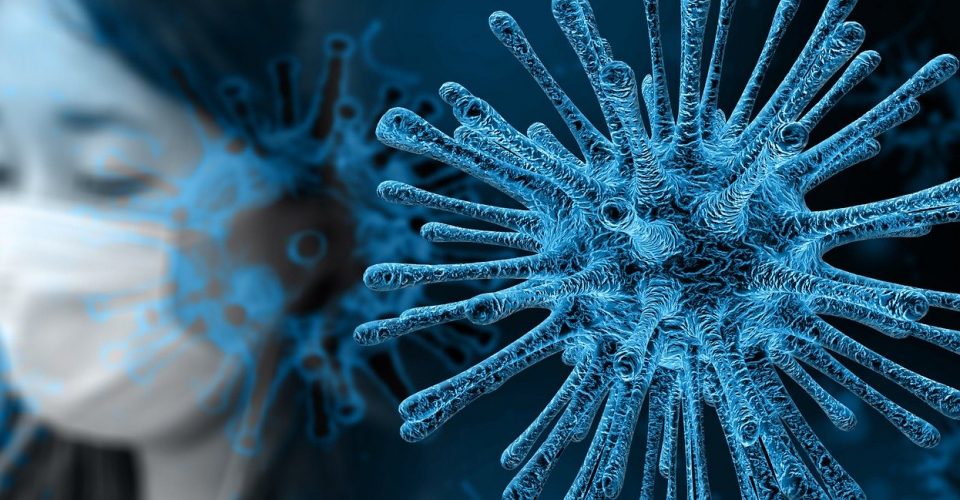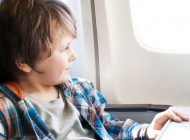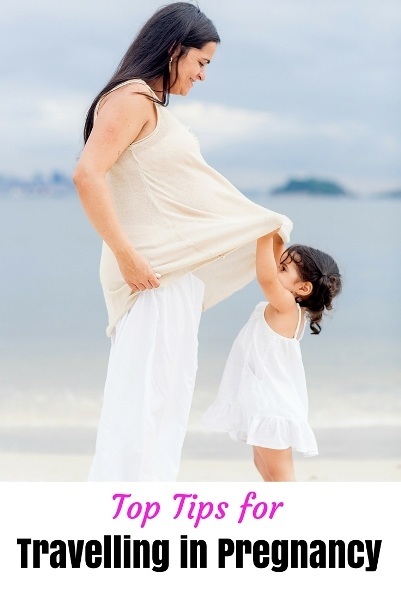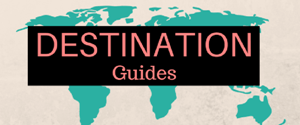
There is so much we don’t yet know about the 2019 novel coronavirus (2019-nCoV) that began spreading in Wuhan, China. Much of the information that is presented to us has been exaggerated or projected from a small amount of verified data. Uncertainty around the threat of a global outbreak leaves parents in a difficult position. We want to protect our children but don’t want to upend our family’s lives needlessly. Especially hard are what to do about already planned vacations or how to plan a vacation months from now. How can you make good decisions for your family with so little information?
Contents
First, handle your emotions
Recognize the things under your control and focus on those. Accept and ignore the unknowable factors and the incoming minutiae of data. It may sound irresponsible, but the more time you spend wading through video clips, daily spreadsheets and possible outcomes, the more you muddy your ability to make clear and unemotional decisions. Accept that you will need to decide on some plan of action despite these unknowns. There will still be unknowable factors tomorrow and a month from now, too. You aren’t in control of what happens, but you can control what you do next.
Unpack your fears
I don’t want my children to get sick and die.
A big fear can overwhelm any choice we make. How do you plan a trip with deep fears weighing on your mind? Fears like this feel immediate and want us to act. But they prevent us from seeing the many choices we will make between now and a potential worst case scenario. Unpack those fears by putting yourself through the series of events that would have to take place to reach that outcome.
First, we go to the airport and board the plane. Maybe someone is coughing on the plane or the kids touch something and they are infected by the novel coronavirus.
You know that your children wouldn’t immediately become sick. In fact, they probably wouldn’t show any signs of illness for a few days.
Three days into our trip our child wakes up with a dry cough…
Stop here and consider your situation. What actions would you take next?
Repack your expectations
If you were on a trip, consider where would you be on the third day. What resources would you have available and how might you respond? You have many options: call a nurse, see a doctor, go to a hospital, call your country’s embassy, cancel the rest of your trip and go home immediately. Or you could simply keep an eye on the cough and continue your vacation. After all, unless you are on vacation in China the most likely cause of that cough would be an ordinary cold.
Also recognize that you can plan your reactions in advance. What should I do if I suspect my child has the novel coronavirus? Which phone numbers do I need to have in front of me? Where is the nearest hospital and how would we get there? Preparing in this way can reduce your anxiety and help you develop an action plan for your family.
How to makes plan despite uncertainty
How can you plan a trip weeks or months in advance when the spread of the virus is changing day by day? Take a pragmatic approach that prevents any “very bad” outcomes (like being stranded in a foreign country) and provides reasonable protection from most “unhappy” outcomes (like cancelling your trip or abandoning your trip halfway) at minimal cost.
Let’s say you are planning a simple one week trip to the beach during spring break. Your biggest upfront costs would be hotel and flight. You could buy a comprehensive trip insurance package that covers pandemics but you need to read the fine print. You might choose to abort a trip if the virus spreads globally but it might not meet the refund requirements for your insurance. Make sure any coverage you buy comfortably covers your risk threshold.
Trip insurance isn’t the only protection you can find. You can buy flights that are fully refundable. Refundable flights may be significantly more expensive, but consider that the virus is beginning to affect travel plan broadly. If the virus continues to spread, flight costs may come down significantly in the coming weeks and months. If that happens you can simply cancel your flight and buy new tickets at a big discount, still giving yourself the option to cancel right before your trip begins.
Many hotels allow reservations to be cancelled up to 24 hours before your trip. The prices are often only a small percentage higher than a fully guaranteed stay, so it is prudent to only book hotels with a flexible cancellation policy. Most hotel aggregators like
Special contingencies
If you are travelling internationally pay close attention to any talk about border closings or evacuations. Get a sense of that country’s infection rate and the government’s current handling of the crisis (and how they have handled any past crises). If things are fine now, you would likely have plenty of warning before something as dramatic as a border closing was to happen. That being said, it is important to have a clear plan of action if things start to progress along that path, especially if there are changes during your trip. Plan to take a decisive action on certain triggers and stick to them. That might look something like “if our outbound flight is cancelled, we will take the first available plane out of the country rather than wait for a new assignment.” Planning a strong response to an escalating concern lets you avoid having to anticipate every possible outcome.
Something outcomes are not predictable, though. What would happen if you and your family were quarantined for two weeks? As unlikely as it may be, think through the problem now so you can reduce your worry down the road. Do you have a dog back home? Does someone in your family need medication? Who would you need to notify if your family was quarantined? Make a brief list of the implications and prepare for them as best you can then try to put it out of your mind.
Backup plans
So you’ve planned a spring break with the kids and everything is fully refundable or fully insured. You’ve considered and planned for any crises during your trip and you have controlled all that you can control. You feel good that you’ve covered your bases but… what’s the plan if you do decide to cancel the trip?
Missing a trip is a bummer, but better than being stuck in a dangerous situation. It may be the best decision, but cancelling your vacation will leave you with a different type of crisis. If you think there is a chance the trip might not happen, try setting different expectations with your kids. Instead of saying “we are going to the beach!” say “I really hope we can go to the beach!” Communicate that you are excited and want to go on the trip, but not everything is in your hands this time. Your children will be just as excited but will have some natural wariness. It doesn’t solve everything but it is better to hear “this sucks!” rather than “but you promised!”
Flying with small children
Eventually the day of your trip will arrive whether you are ready for it or not. Flying with young children is hard enough. How do you plan to keep your 3 year old from touching every surface or rubbing their eyes the entire length of that seven hour flight?
You can’t. You have to accept that no matter what you do, your child will inevitably spot a Cheerio on the ground and eat it before you can stop them. If it is that, there will be some other brazen, death-defying act. The most important thing you can do is stay calm, accept the situation as it unfolds and take the most helpful action available to you in that moment. Sometimes, like after your child eats a Cheerio off the ground, your best move might be to do nothing. Another healthy kid probably dropped it a minute ago.
You may decide that you want your child wear a mask in the airport, but if they rip it off 15 times in a minute you may need to choose between the mask or your vacation. If you felt safe enough to take this vacation, stay flexible and don’t get into a battle with your child. Reduce risks as best you can and accept that you can’t control every action your child takes. Most importantly, know that any single action they take doesn’t significantly increase their risk of infection. Remember this when you catch your child licking the airplane window.
Risk Reduction vs. Myths
We don’t know everything about the novel coronavirus, but we do know generally how this class of virus spreads. It is passed as droplets through the air (like when someone coughs on you) or it can may persist for several hours on surfaces like doorknobs or food. Masks may be selling out online, but they are not currently recommended by the CDC. Masks can help protect others if you are sick because they limit the spread of your cough, but they are often improperly worn and children have few options that fit well. A more pragmatic approach is to ask your children to give everyone plenty of personal space, especially in airports or on crowded sidewalks.
Have your family follow the CDC’s guidelines and follow their primary advice: wash your hands often with soap and water for at least 20 seconds. Children may need help washing their hands effectively. Hand sanitizer is not an equivalent replacement for soap and water because it doesn’t fully remove the virus from your hands. Ethanol-based hand sanitizer is more effective than isopropanol against viruses, though either will help. Make sure any sanitizer you buy is between 60-95% alcohol. You may think 99% alcohol would work best but virus proteins don’t denature easily without some water.
Communicate with your child
Children are highly attuned to their parent’s emotional state. If you are worried about the novel coronavirus your child will be worried, too. With so much talk about the coronavirus they may have questions about it. How you react will dictate if they are fearful, careful or indifferent.
It is ok that you don’t have all the answers and it is ok to communicate that. If your child is fearful, focus on the positives: “Lots of people are working together to figure out how the virus works and how we can stop it. They want to stop it from spreading so everybody can stay healthy. And most people who catch it get better, just like with a bad cold.”
Direct your child’s fears and curiosity to things they can do for themselves. They can wash their hands with soap and water. They can keep space between themselves and others. If they have a cough, remind them to always cough into their “chicken arm” (elbow) instead of their hands.
Trusted Links
- CDC 2019 Novel Coronavirus – Prevention and Treatment
- WHO Novel Coronavirus (2019-nCoV) Advice for the Public
- U.S. Dept. of State Travel Advisories
Tags: Travel Tips






















